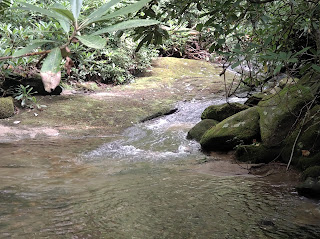One of my potted herbs, a basil plant, takes time to
water. If I try to pour water on it from my watering can, the water simply runs
across the top of the soil and over the edge of the pot. The plant itself gets
no benefit.
What I’ve learned is that I have to use a small watering
bottle with a straw, and squeeze water through the small opening in the straw
to give the plant what it needs. It takes time, but it’s the only way I can
adequately water the plant.
I thought about this plant as I was reading from the
epistle attributed to James. James begins his letter with these words:
My brothers and
sisters, think of the various tests you encounter as occasions for joy. After
all, you know that the testing of your faith produces endurance. Let this endurance
complete its work so that you may be fully mature, complete, and lacking in
nothing. (James 1:2-4)
To build endurance involves some soaking. It takes time,
patience, consistency, and the ability to be content when you don’t see
“progress.” Endurance requires showing up, day after day, moment by moment. It
isn’t glamourous. It doesn’t draw much attention. It doesn’t generate a rush of
adrenaline. It may not garner you any praise or recognition.
Endurance is about remaining in the flow of God’s grace
so that you are gradually reshaped. I think about rocks worn smooth by constant
contact with the flow of a stream. It takes a very long time for a rock to go
from jagged to smooth. In the same way we grow more complete in our faith by remaining
in the flow of grace.
The willingness to be consistent and constant without any
significant signs of progress does test our faith. We would prefer that God
would bestow signs and wonders on us that enable us to be certain of our
growth. It’s been my experience, though, that God works mostly in small,
subtle, barely perceptible ways. We have to trust that the soaking, the flow,
is moving us toward maturity and completeness.


